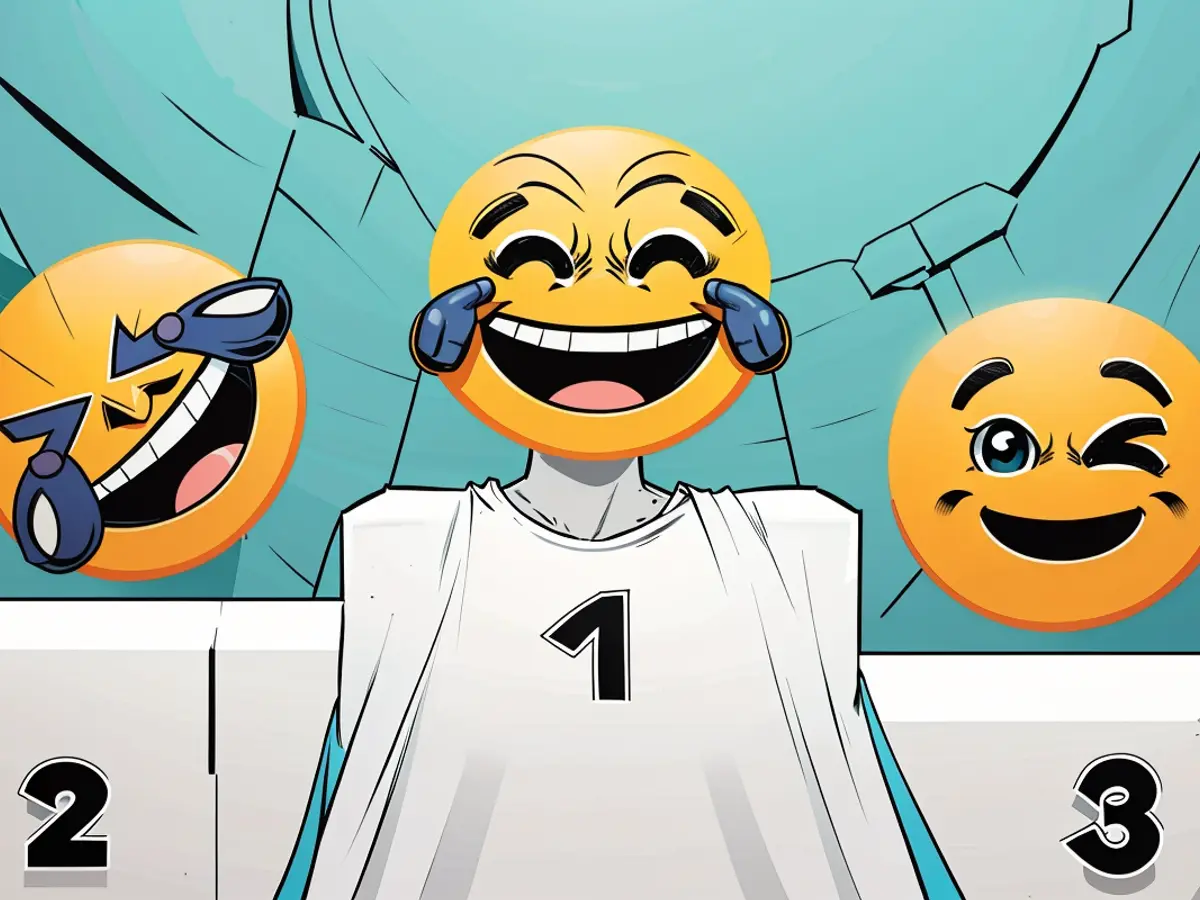Emojis are more complex than one might assume 😉😜
Germans tend to utilize laughing emojis frequently, yet these symbols don't always carry a friendly intent. The utilization and interpretation of these icons frequently diverge significantly from their official meanings, much like the eggplant emoji.
Researchers from Ruhr University Bochum and Charité Universitätsmedizin Berlin investigated how German users employ and perceive facial emojis. They discovered that the intended or perceived message often varied from the emoji's official meaning. The findings were published in the journal Behaviour Research Methods.
WhatsApp Shapes Design
The researchers surveyed 60 women and 78 men, ranging in age from 18 to 70, with an average age of 32. They focused on 107 emoji faces accessible at the time of data collection. Considering WhatsApp's popularity as the leading chat platform in Germany, they selected its design for the study.
Nearly 90% of participants reported regularly using emojis in digital communication, with 32.5% stating "frequently," 22.5% "occasionally," and 10.1% describing their use as "irregular" ("rarely"). Only one individual admitted to never using emojis.
Participants provided input on five aspects using continuously movable sliders: their familiarity with the emoji, its clarity, complexity, emotional content, and intensity. Additionally, researchers asked participants to describe each emoji's meaning in up to three words, with the descriptions analyzed using computational linguistics methods, according to Tatjana Scheffler, a linguist at Ruhr University Bochum.
Emoji Usage analyzed on Twitter and WhatsApp
To determine the frequency of individual emojis, scientists analyzed 280 million Twitter messages. To explore the most popular facial emojis in private conversations, they used the German Mobile Communication Database 2 (MoCoDa2), which allows users to contribute data.
The most commonly used emoji is the face with tears of joy, followed by the laughing face and the winking smiley. The least utilized emojis are the face in clouds and the face with a dotted line, which were introduced in 2021.
"Negative emojis are emotionally more intense"
The researchers discovered that the most frequently used emojis were also the most familiar. Emojis rated positively emotionally have an advantage. Visually complex emojis are less popular. "Negative emojis are emotionally more intense than positive ones," Tatjana Scheffler stated. The researchers suspect that this may be due to frequent use leading to a decrease in effectiveness.
The Unicode Consortium establishes what emojis represent, with all major platforms as members. However, the actual use of emojis often deviates from the listed possibilities, Ivan Nenchev, a psychiatrist and psychotherapist at Charité Berlin, mentioned.
Friendly or Passive-Aggressive?
The participants' free descriptions of the emojis revealed significant differences. While certain emojis have a single main meaning - like the face with tears of joy being "funny" or "laughing" - others have multiple meanings. The slightly smiling face is described as both friendly and passive-aggressive, and younger users interpret it as "I'm dead inside."
The meanings and connotations are not constant, researchers pointed out. They cited the eggplant emoji, used as a phallic symbol, as an example. Meanings and associations can evolve with the addition of new emojis, they noted. For instance, the "face with diagonal mouth" and "melting face" introduced in 2021 could potentially express shame and embarrassment.
Tatjana Scheffler declared, "The result of the study represents the most comprehensive dictionary of facial emojis to date." "It demonstrates that the meanings of emojis are not straightforward and can even be contradictory," she added.
Given the context of the text, here are two sentences that contain the word 'Linguistics':
The researchers at Ruhr University Bochum used computational linguistics methods to analyze the participants' descriptions of the emojis.
The complexities in emoji meanings highlight the need for further studies in linguistics and semantics to better understand their usage and interpretations.







